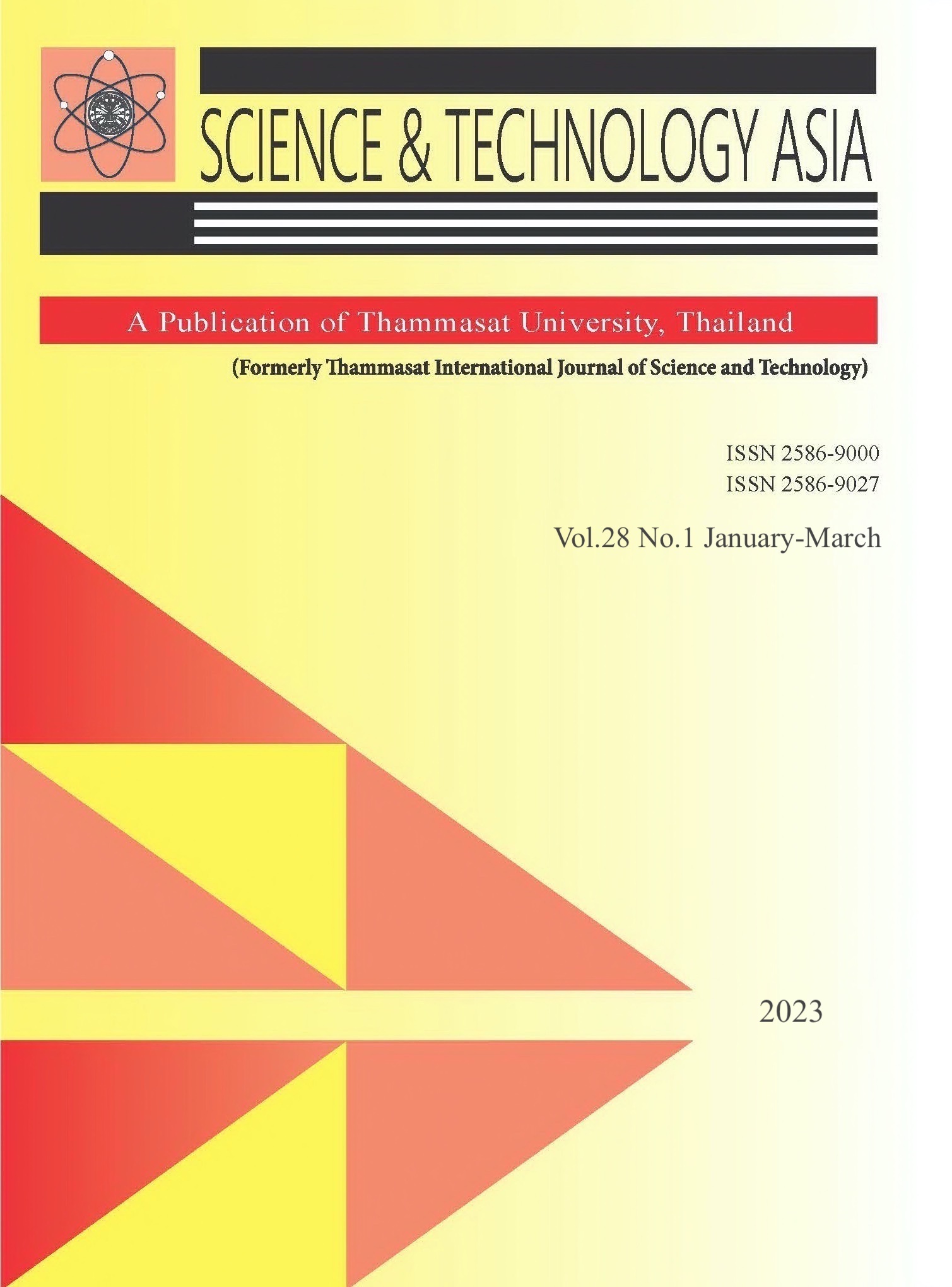Effect of Pulsed Electric Field Pre-Treatment on Thai Mango Pickle Production
Main Article Content
Abstract
This study aimed to investigate the influence of a pulsed electric field (PEF) and compote process on Thai mango pickle production. A factorial completely randomized design (CRD) was conducted at electric field strengths of 2 and 3 kV/cm, electrical frequencies of 1 and 3 Hz, and 700 and 1,300 pulses. The PEF experiments were done in 50 °Brix sucrose syrup for 30 h at 30 °C in comparison with a conventional method. The moisture content, water activity (aw), colour, texture properties, mass transfer, and microstructure of pickled mango were investigated. Water loss (WL), solid gain (SD), and water reduction (WR) of PEF-pickled mangos increased approximately 2.5-3 fold as compared to the control. The combination of PEF and compote processes significantly reduced moisture content, aw, colour, and texture in terms of hardness and toughness (p<0.05). Among eight treatments, the application of a PEF at 3 kV/cm field strength, 1 Hz of frequency, and 1,300 pulses provided the highest value of mass transfer. The microstructure of mangos after the PEF processes was disintegrated and of uncertain structure. This finding implies that the combination of a PEF and compote process might be an effective pickling process for pickling mangoes on an industrial scale due to quickening of the mass transfer rate.
Article Details

This work is licensed under a Creative Commons Attribution-NonCommercial-NoDerivatives 4.0 International License.


